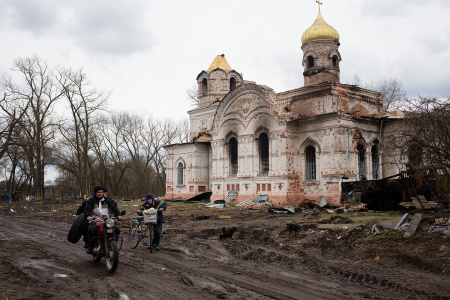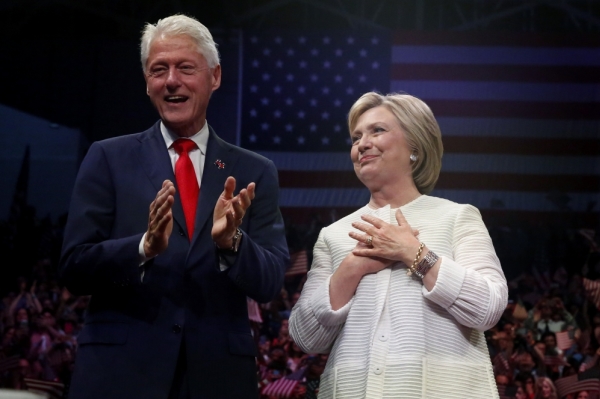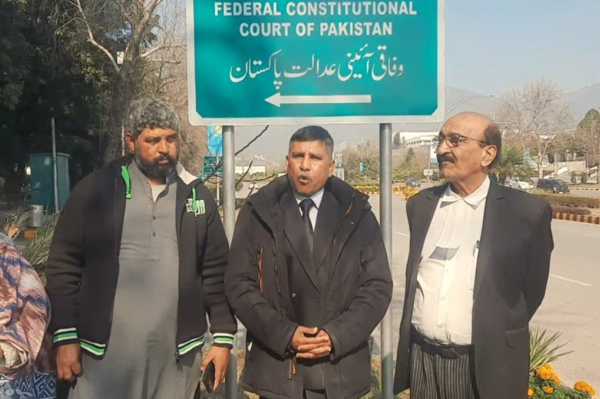Former Russian-linked denomination suggests Ukraine's church crackdowns hamper religious freedom

An Orthodox denomination in Ukraine that holds historic ties to Moscow has questioned the Ukrainian government's recent crackdown efforts targeting dozens of churches formerly affiliated with the Russian Orthodox Church.
The Ukrainian Orthodox Church, which has long been affiliated with the Russian Orthodox Church, has been the subject of an investigation by authorities since Russia invaded Ukraine last year.
This is even though the UOC publicly severed its connections to the Moscow Patriarchate in May 2022, and its leadership has denounced the Russian invasion.
UOC Bishop Metropolitan Klyment told CNN in an interview published Sunday that raids by the Ukrainian Security Service have not found anything that proves the church's alleged disloyalty to Ukraine.
"There was no mention in the findings of weapons or saboteurs. What they said they found was printed matter, documents, which are not prohibited under Ukrainian law," said Klyment.
"Members of the Ukrainian Orthodox ... are citizens of Ukraine, and sometimes among the best citizens of Ukraine, proving their patriotism with their own lives," he added, referring to church members who were fighting the Russians.
Since the beginning of the war, hundreds of church buildings have been forcibly converted from UOC to the Orthodox Church of Ukraine, the Orthodox denomination based in Ukraine that was founded to be independent of Moscow.
According to CNN, the Ukrainian government reports that since the invasion began last February, 19 church clergy have been charged and five convicted.
The UOC has been a concern for the Ukrainian government due to their longstanding ties with Russia, since Moscow Patriarch Kirill has been a staunch supporter of the Russian invasion of Ukraine.
The Ukrainian Security Service told CNN in a statement that while it is not illegal to possess Russian propaganda, it is illegal to distribute it.
"If such literature is in the library of the diocese or on the shelves of a church shop, it is obvious that it is intended for mass distribution," the statement contends, adding that the operations against churches are for national security purposes and "not a matter of religion."
A spokesperson for the Russian Orthodox Church told the outlet that the church raids are an "act of intimidation."
Last November, Ukrainian authorities searched the Pochaiv Theological Seminary in Ternopil Oblast and the Ivano-Frankivsk Eparchy of the UOC, claiming to have found pro-Russian propaganda materials that "denies the existence of the Ukrainian people, its language, as well as Ukraine's right to statehood" on the premises.
"The Security Service also found pamphlets and books of xenophobic and hateful content with offensive fictions about other nationalities and religions," stated authorities.
"We emphasize that in its activities the SBU adheres to the principle of impartiality towards the activities of any religious denomination and respects the right of every citizen to freedom of worldview and religion, as defined by the Constitution of Ukraine."
In December, Ukraine's Security Council took possession of the assets of seven Orthodox clergy and banned them from certain economic and legal activities.
Ukrainian President Volodymyr Zelensky justified the actions by arguing that the measures were to prevent the clergy from helping Russian forces.
"We are doing everything to ensure that no strings are available to be pulled by the aggressor state that could make Ukrainian society suffer," stated Zelensky, as quoted by Reuters last month.
In early December, Zelensky called on the Ukraine government to make a law banning any church that might take orders from Moscow. Zelensky claimed Russia was trying to "weaken Ukraine from within."
Some in the United States have expressed concern over the crackdowns on Orthodox churches, seeing them as threats to religious liberty in the Eastern European nation.
"We claim Ukraine's battle against Russia is a fight for democracy, but sending the army into monasteries is not promoting liberty," wrote Hedieh Mirahmadi, a columnist for The Christian Post, in an article published last month.
"This latest move by our ally in Ukraine should be grounds for a loud outcry from Christians, regardless of where we stand on the political spectrum."





















